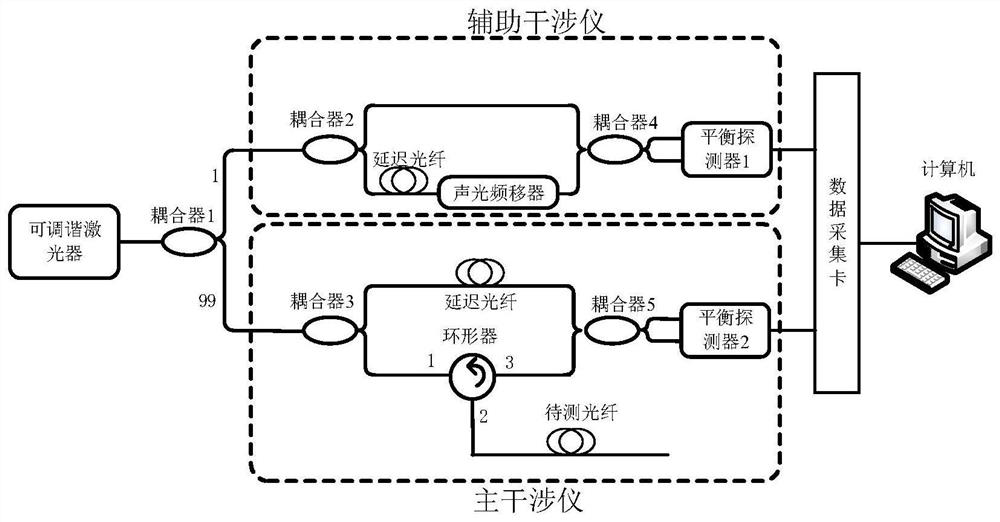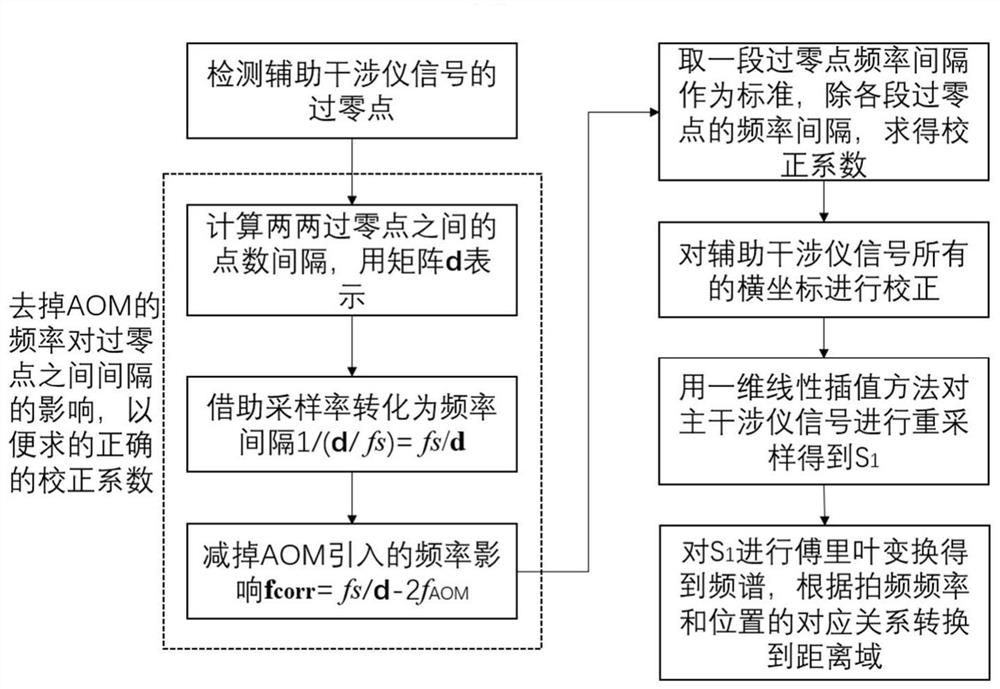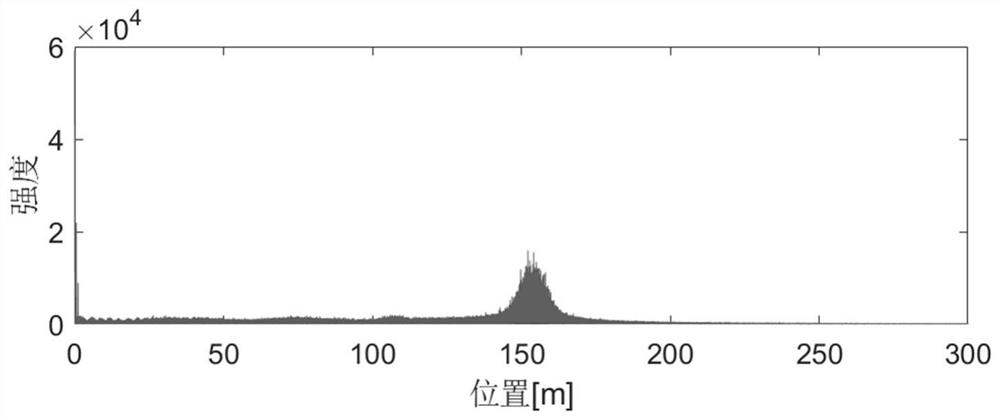A Compensation Method for Laser Nonlinear Tuning Effect in Optical Frequency Domain Reflectometry
An optical frequency domain reflectometer and nonlinear tuning technology, which is applied in the direction of transmitting sensing components, instruments, and converting sensor output with optical devices, to achieve the effects of increasing the maximum measurable length, increasing the measuring distance, and improving the spatial resolution
- Summary
- Abstract
- Description
- Claims
- Application Information
AI Technical Summary
Problems solved by technology
Method used
Image
Examples
Embodiment Construction
[0029] The specific embodiment of the present invention is described in detail below in conjunction with accompanying drawing:
[0030] In OFDR, the light source used is a tunable laser. The frequency-sweeping light emitted by the laser passes through the reference path and the measurement path, and beat frequency occurs. When the laser sweeps linearly, there is a one-to-one correspondence between the beat frequency and the position of the optical fiber to be tested. relationship: f b =2γnz / c. The collected signal is converted from the time domain to the frequency domain by Fourier transform, and the position information of the reflection point can be obtained according to this relationship. However, lasers generally have a nonlinear frequency sweep. At this time, the sweep rate is a function of time, and the relationship between the beat frequency and the position of the fiber to be tested becomes: f b =2γ(t)nz / c, one position corresponds to multiple beat frequencies, resul...
PUM
 Login to View More
Login to View More Abstract
Description
Claims
Application Information
 Login to View More
Login to View More - R&D
- Intellectual Property
- Life Sciences
- Materials
- Tech Scout
- Unparalleled Data Quality
- Higher Quality Content
- 60% Fewer Hallucinations
Browse by: Latest US Patents, China's latest patents, Technical Efficacy Thesaurus, Application Domain, Technology Topic, Popular Technical Reports.
© 2025 PatSnap. All rights reserved.Legal|Privacy policy|Modern Slavery Act Transparency Statement|Sitemap|About US| Contact US: help@patsnap.com



